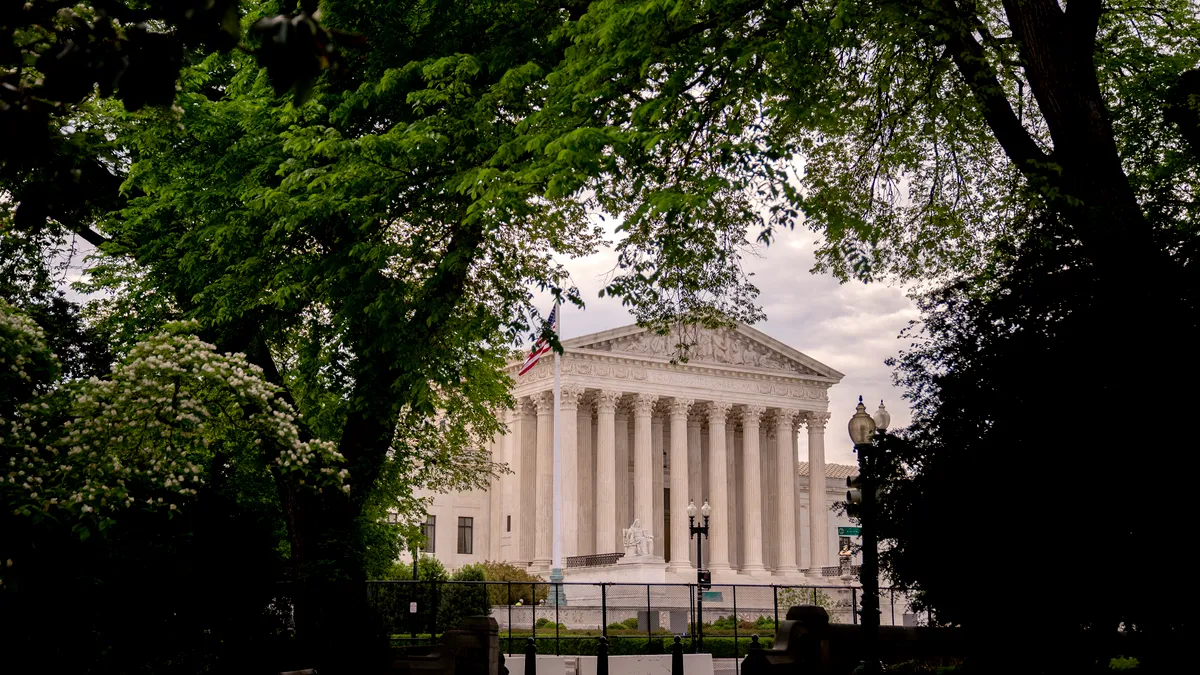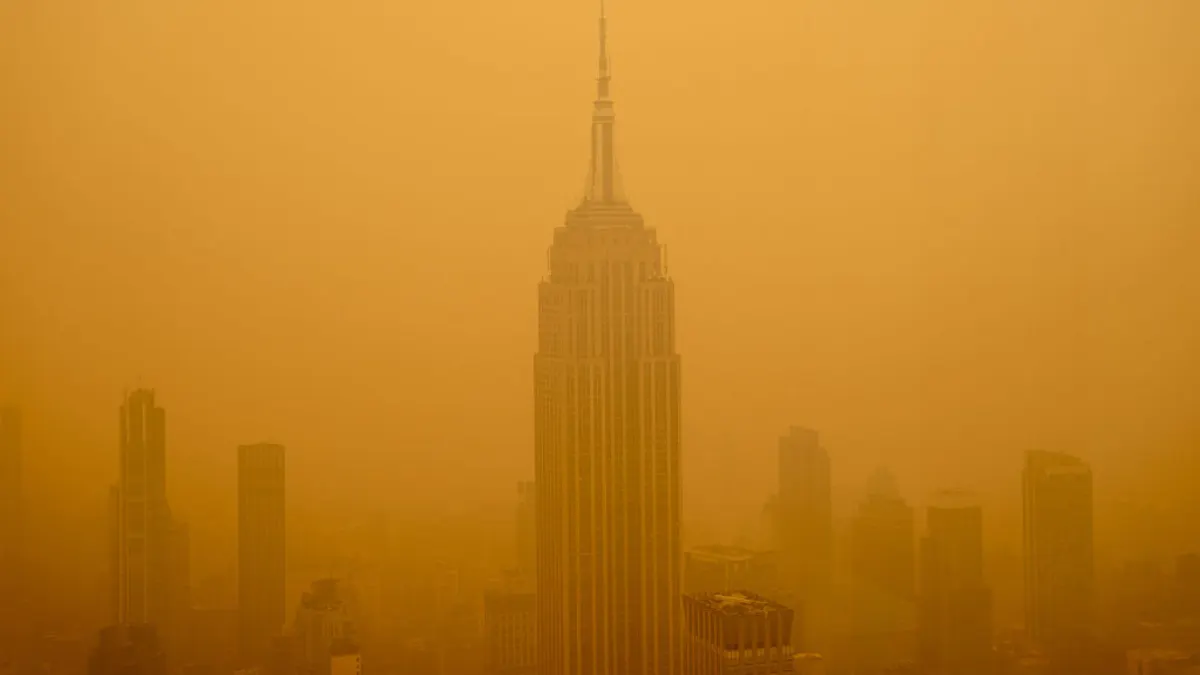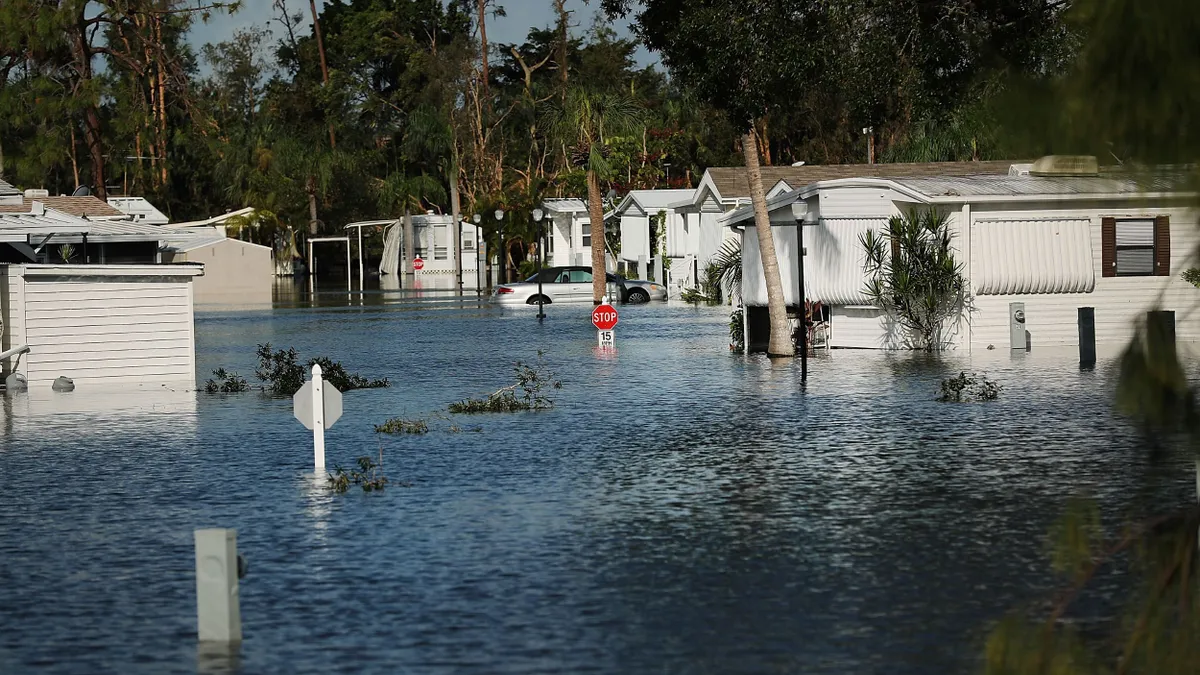Many mayors are condemning the U.S. Supreme Court’s decision Thursday limiting the Environmental Protection Agency’s ability to regulate greenhouse gas emissions from power plants under the Clean Air Act.
In a joint statement following the decision, the heads of the National League of Cities and U.S. Conference of Mayors said the ruling represents “a major step back in our fight to keep our communities safe from the devastating effects of the climate crisis.”
Both organizations filed an amicus brief for the case, West Virginia v. EPA, arguing against limiting the EPA’s regulatory authority to reduce carbon emissions and supporting the Obama administration’s Clean Power Plan, which set broad emissions reduction targets for the power sector. The Supreme Court ultimately ruled 6-3 with all conservative justices in the majority to limit the EPA’s ability to regulate the energy sector.
The state of West Virginia, an attorney for a coal company and a coalition of states argued to the Supreme Court that the Clean Air Act required the federal agency to regulate generating facilities by setting emissions standards that individual power plants can meet and that the Clean Power Plan's approach to regulating a state's entire power plant fleet was improper.
U.S. Sen. Shelley Moore Capito, R-W.Va., said in a statement the decision made clear that the EPA does not have the authority to “issue regulations that transform how we use and generate electricity in this country.”
“If Congress had intended to give EPA such sweeping authority to transform an entire sector of our economy, Congress would have done so explicitly,” Moore stated.
Many cities throughout the country have been aggressively trying to decarbonize their buildings and transportation through new regulations and standards, as they battle floods, hurricanes, blizzards, droughts, wildfires and heat that have become more frequent and intense due to climate change. Numerous reports produced by world leaders, including the United Nations, have stated the need for cities and governments to quickly reduce greenhouse gas emissions and take aggressive action to avoid the worst effects of the climate crisis.
In its amicus brief, the two organizations, representing mayors and cities throughout the U.S., said cities have been responding to climate change's “catastrophic impacts on their residents and budgets” through a host of actions intended to reduce greenhouse gas emissions. But local governments rely on federal regulation to supplement and support their own initiatives and placing limits on the EPA would restrict the tools federal, state and local governments have to address power plants’ greenhouse gas emissions in a cost-effective manner, the brief contended.
“Local leaders are on the front lines of battling the climate crisis – but we can’t do it alone,” NLC CEO Clarence Anthony and USCM CEO Tom Cochran said in their Thursday statement. “Many cities, towns and villages will continue to work to reduce greenhouse gas emissions, but today’s decision leaves us working uphill against this threat.”
Individual mayors from large, mid-sized and smaller cities in geographic regions throughout the U.S. have also criticized the Supreme Court’s decision. In a tweet, Salt Lake City Mayor Erin Mendenhall said she was “sickened again” by the Court’s actions to “undermine the well-being of the American people.”
“Carbon emissions affecting climate change is the most pressing global issue for governments to grapple with. This decision hurts us all today and our future even more,” Mendenhall continued. Other mayors who took to Twitter following the decision included those from Austin, Texas; Cleveland; Los Angeles; and Louisville, Kentucky.
Satya Rhodes-Conway, mayor of Madison, Wisconsin, said in a statement: “We can’t fully know the extent of the harm this decision will cause, but it is likely to be far-reaching and devastating to our nation’s ability to fight climate change.”
Denver Mayor Michael Hancock — while releasing the city’s Office of Climate Action, Sustainability and Resiliency 2021 annual report and first-year investments in its Climate Protection Fund on Thursday — said in a statement that the Supreme Court’s decision makes action at the local level even more critical, and urged other cities and leaders to also take action.
Chicago Mayor Lori Lightfoot said in a statement the decision “undercuts the EPA’s ability to address climate change” and is an “affront to our nation’s ability to implement immediate solutions to protect communities from pollution and support environmental justice.”
“It is now up to cities and states, in partnership with our communities, to overcome this court’s recklessness and towards a cleaner, safe and healthier Chicago — and the United States now and for generations ahead.”




















